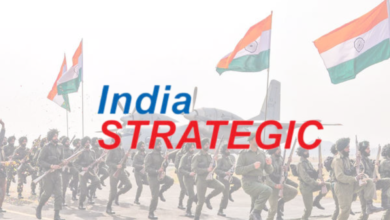- Improving Space Situational Awareness (SSA) on small debris and compliance with mitigation roadmaps are key to the protection of future space missions.
- The country is still at the nascent stage in terms of space situational awareness (SSA) and space traffic management (STM) and the Indian Space Research Organisation (ISRO) wants to develop capabilities in this domain.

Bangalore March 15. G. Satheesh Reddy, Scientific Advisor to the Defence Minister, said the global space community needs to collectively explore the possibilities of zero-debris missions, the protection of space assets and regulations that the community complies with.
He was delivering the key note address at a workshop on Space Situational Awareness (SSA) and Space Traffic Management (STM) – Growing Concerns on Space Environment, here, recently.
Shedding light on the evolving nature of SSA, considering how space has become the “fourth dimension of warfare”, the Scientific Advisor to Defence Minister said, defining rules and norms for the responsible use of space has been a complicated and contentious issue that has been heavily influenced by national security interests over safety.
More-reliable, more multisource-integrated, and more widely available Space Situational Awareness (SSA) and Space Traffic Management (STM) systems are needed to ensure the safety and sustainability of space operations between active satellites and orbital debris, Dr. Reddy stressed.
The possibility of a terrestrial conflict extending into space or a conflict beginning in space is becoming increasingly real. All space stakeholders, not just the major but even the emerging space powers, must first understand the problems facing the New Space Era, Dr. Satheesh Reddy, urged.
Although most states want to limit the production of counter-space weapons by others, those that have the capability to do so do not want to give up their right to develop these systems as a means for self-defence, he said.
There is a need to recommend a proactive and coordinated global information campaign that will not only build awareness but also facilitate the alignment of nations on the importance of space for all, he added.
Dr. Reddy said, Nations should continue the important work of establishing a common lexicon for space terms and activities.
All major space players should cooperate on increased transparency regarding on-orbit operations. Failing to do so undermines the credibility of those that claim to favour transparency and responsible behaviour, he said.
Existing and emerging best practices, guidelines, and standards need to include a method for measuring compliance that accrues a benefit to entities that comply and some cost to those that do not, he stated.
The Scientific advisor to Defence Minister gave a call that the initial discussion should focus on the safety aspects of concerns like debris and maneuvering notifications before including the more complicated discussions about security activities.
The early space domain was dominated by two superpowers. Today, the world has more spacefaring nations, multiple commercial space operators, and a global economy that is inextricably linked to space, he highlighted.
Dr. Reddy concluded stating that it remains to be seen whether there is adequate will by all, to transcend the short term gains and focus on ensuring long-term sustainability in space.

S. Somanath, Chairman Indian Space Research Organisation (ISRO) and Secretary Department of Space said, The country is still at the nascent stage in terms of space situational awareness (SSA) and space traffic management (STM) and ISRO wants to develop capabilities in this domain.
ISRO is trying to achieve technical capabilities to build the observation platforms in the country, which would help gain mutual respect in the world, he said.
“There is an increased interest in India in this particular domain of SSA and STM. We want to develop the capability in India, both in civilian as well as security-related aspects,” the ISRO Chairman said.
“What we are trying to achieve is the technical capability to build the observation platforms in India, ability to predict and contribute to the global space situation awareness and finally, unless we are strong in this domain, there will be no mutual respect,” the space scientist said.
According to Somanath, the goal is to gain the mutual respect so that there is reciprocity data and information share that would happen between India and other nations. This would strengthen the security of the space assets India has, he said adding this effort would make India technically stronger in the international community.
“So, this is the primary goal of this exercise we are trying to do. Currently, this capability is at a nascent stage in India and we want future growth. There is also a huge commercial potential in this area. That’s why industries are interested. So, we have roped in industries, which will build systems in India as well,” Somanath said.
The systems include observation platforms, radar, analytical capabilities, and data supplying in terms of commercial exploitation, among others, he said adding that ISRO would look forward for growth in the next few years.
(Images Source: ISRO)





